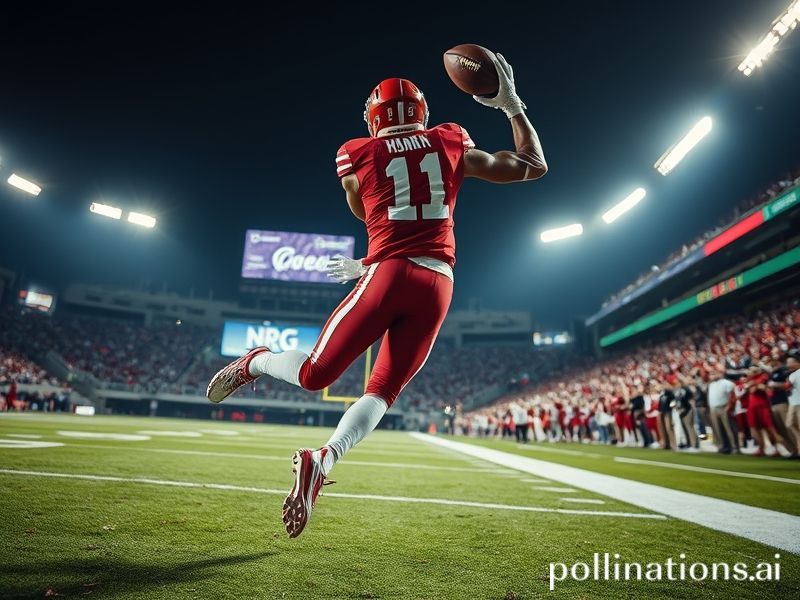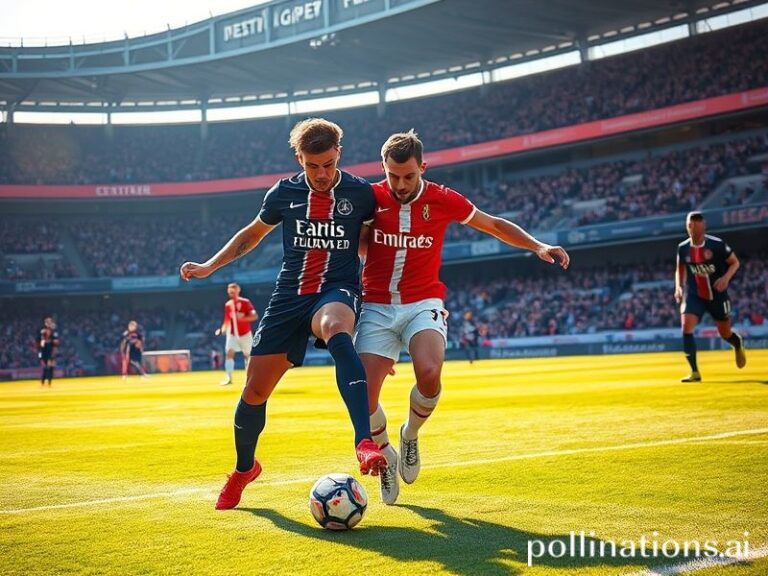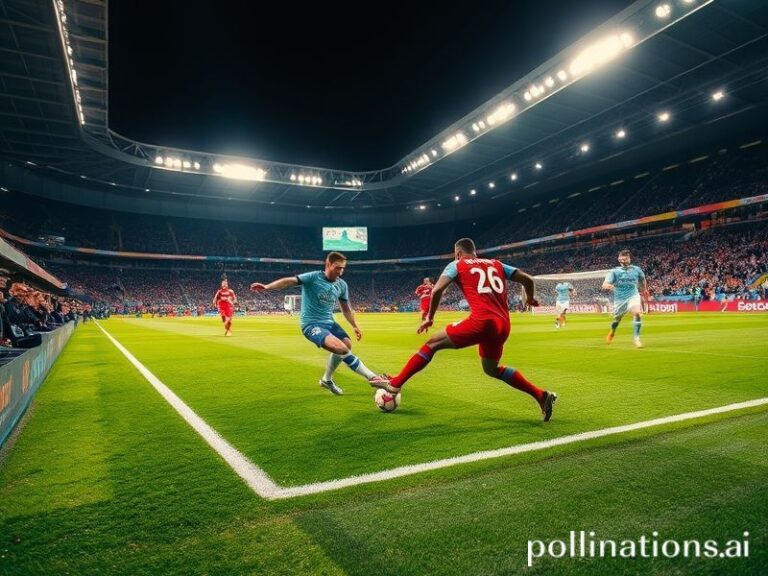Houston Texans Go Global: How One NFL Team Exports Mediocrity to a World That Keeps Buying
Houston Football: A Lone Star Circus with Global Tickets
By Our Correspondent Who Once Mistook Texas for a Micro-Nation
From the air-conditioned purgatory of Frankfurt’s airport lounge, the news ticker flashed a single line: “Houston Texans to Host NFL International Game in 2024.” Somewhere in Lagos, a WhatsApp group of Manchester United ultras groaned. In Seoul, a K-League striker paused his bibimbap to ask, “Is that the team with the steer on the helmet, or the one that moved to Nashville?” Thus does Houston football—equal parts rodeo, soap opera, and quarterly earnings call—continue to baffle the planet while insisting on its own relevance.
Don’t confuse Houston football with the city’s other civic pastimes: petrochemical leaks, Category-5 real-estate optimism, or inventing new toll roads to nowhere. This is strictly about the Texans, the NFL franchise that has elevated mediocrity to an art form. Since their 2002 birth—child of civic ransom notes and stadium blackmail—they have delivered exactly four playoff wins, a batting average that would get a European football manager defenestrated. Yet the Texans now aspire to export that inefficiency worldwide, like artisanal gulf-coast smog.
The league’s international schedule is a polite euphemism for “revenue laundering.” London’s Tottenham Stadium, Munich’s Allianz Arena, and soon São Paulo’s Neo Química Arena have all been conscripted as pop-up cathedrals for American gridiron evangelism. When the Texans land next season, they will arrive as 2-15 ambassadors, generously reminding foreign audiences that failure, too, can be monetized. Ticket prices will be denominated in euros, pounds, or reais—currencies still naïve enough to believe parity with the dollar means something.
Globally, the spectacle trades on a seductive illusion: that 53 oversized men in polyethylene armor can teach the world about American exceptionalism. The Texans’ playbook, however, reads more like an allegory of late-capitalist malaise. There’s the $72 million quarterback who can’t feel his own toes, the general manager who drafts like a sleep-deprived fantasy-football rookie, and the owner who keeps commissioning bigger scoreboards to compensate for smaller victories. Swap shoulder pads for spreadsheets and you’ve got the quarterly report of any multinational conglomerate—minus the government bailout.
Still, the Texans are merely the latest Texans. Houston’s football romance began in 1960 with the Oilers of the old AFL, whose flaming-derrick logo predicted the city’s eventual hobby of self-immolation. They fled to Tennessee in 1997, taking the city’s dignity and Earl Campbell’s thighs with them. Local mourning lasted until the NFL awarded an expansion team, proving that heartbreak has a retail price: $700 million in public subsidies and a retractable roof that closes faster than a Swiss bank account.
Why should the world care? Because Houston is the laboratory where globalization stress-tests its contradictions. The city’s population speaks 145 languages, yet unites every Sunday to scream in binary: win or lose. NRG Stadium’s corporate boxes teem with Nigerian oil traders, Chinese rare-earth brokers, and Colombian coffee barons—all united in the hope that the Texans can cover the spread. The parking lot smells equally of brisket, shisha, and capital flight. If you want to see how mercantile empires distract their middle managers, watch a Guatemalan logistics VP try to explain the infield fly rule to his German intern over $14 Bud Lights.
Back in Europe, pundits sneer that American football is rugby for people who need a committee meeting between plays. Yet the Texans’ global rollout coincides with record ratings abroad, suggesting the planet has an underreported appetite for regulated violence and snack-based nationalism. In Hong Kong, gamblers hedge Texans futures against Evergrande debt; in Dubai, crypto bros mint NFTs of every Desmond King missed tackle. Somewhere, a UN subcommittee is drafting sanctions on the red-zone offense.
The Texans will probably lose abroad, graciously confirming foreign stereotypes about American overreach. But they’ll still return home heroes, buoyed by jersey sales in currencies stronger than their own offensive line. Because in the end, Houston football isn’t about winning; it’s about convincing the world that losing can be branded, packaged, and resold at a modest mark-up. Which, come to think of it, is the most American export of all.







